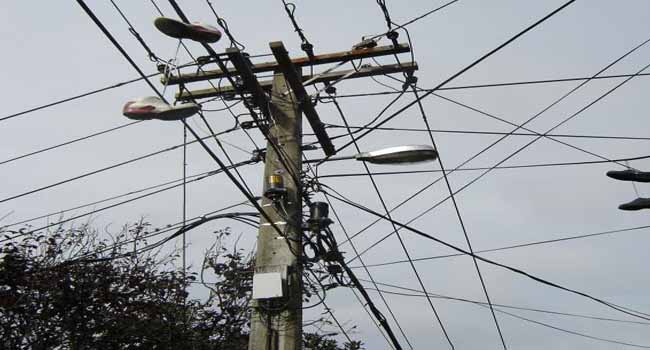Power producers in Nigeria are owed at least $2.7 billion by a state-owned company that buys their output and resells it, threatening their viability and undermining their ability to invest in the energy-starved nation, according to an industry association.
Only 60% of residents of Africa’s most populous country have access to electricity and even those who do are plagued by regular outages. While President Muhammadu Buhari has made tackling the power deficit a priority, the failure by the state-owned Nigerian Bulk Electricity Trading Co., or NBET, to pay its debts on time is a major hindrance to meeting that goal.
Estimates that the trading company has amassed 1 trillion naira ($2.7 billion) of debt to power producers since 2013 are “extremely conservative,” Joy Ogaji, executive secretary of the Association of Power Generation Companies, said in an interview in the capital, Abuja. “To be frank, I’m afraid for the survival of the industry in the next six months.”
NBET confirmed in a statement on its website that it’s only able to pay producers a portion of what they invoice — typically 10% to 30% — due to debt-collection problems of its own. It sells power to closely held distribution companies, which are in arrears, in part because they can only secure payment for about two-thirds of the electricity they supply to end-use consumers.
“My contract is with NBET to put power on the grid and be paid 100% for it,” Ogaji said. “Whether your off-takers are paying you or not, that shouldn’t be my problem.”
An NBET spokeswoman didn’t respond to a request for comment.
The distribution companies complain that the regulator didn’t institute realistic tariffs when the electricity industry was partially privatized in 2013, and that price increases haven’t kept pace with inflation or responded to a deterioration in the exchange rate.
“If you’re underselling the product how can you remit 100%?,” Sunday Oduntan, executive director of the Association of Nigerian Electricity Distributors, said by phone.
The Nigerian Electricity Regulatory Commission on Jan. 5 announced that it will raise consumer prices in April as part of a plan to help the distributors narrow their revenue shortfall. The increase will be the first since 2015.
Reluctant Payers
The tariff increase will help “take us out of the woods,” but even at current prices people aren’t willing to pay their bills, Oduntan said. Ministries and government departments are among those who are in arrears, he said.
While the government has committed to covering the difference between cost-reflective tariffs and the price consumers pay, it owes the distribution companies more than 500 billion naira, PricewaterhouseCoopers said in a presentation in September. The state has made several big interventions across the electricity industry since 2014 “to avoid total collapse,” the firm said.
Nigeria has 13,000 megawatts of installed electricity-production capacity, about 80% of which comes from gas-fired plants. But only 7,500 megawatts of that is available and an average of about 4,000 megawatts is dispatched to the grid each day.
Distribution companies are unable to use all the power producers can offer due to the poor state of the state-owned transmission infrastructure, meaning a large amount of it goes to waste, according to Oduntan.
The Nigerian government signed a deal with Siemens AG in July to rehabilitate and then expand the national electricity grid.
Ogaji questioned the rationality of a Jan. 1 announcement by Buhari that the government intends building the multi billion dollar, 3,000-megawatt Mambilla hydropower facility in eastern Nigeria — a project first conceived in the early 1980s — to ease energy constraints.
Why is the country “acquiring more capacity when what is available is stranded?” Ogaji said. “First and foremost, let’s optimally utilize what is available.”
.Bloomberg













